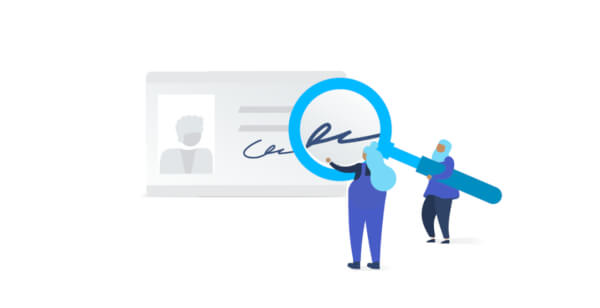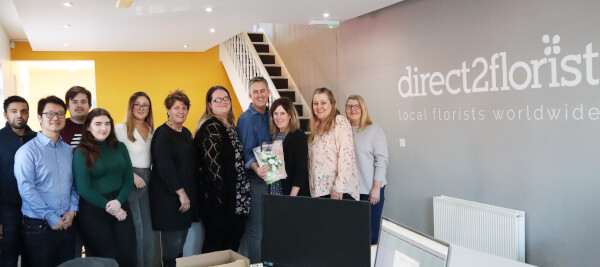How eIDs make proving your identity easier, faster, and almost free
A case study on how Swedish BankID and other electronic identities (eIDs) make customer identification, authentication and verification easier, faster, cheaper.

In the UK alone, the growth in the number of people moving into self-employment over the last few years is staggering. According to ONS data, 3.3 million people, or 12% of the population worked for themselves in 2001. That shot up to 4.8 million — a whopping 15.1% of the UK population in 2017, with freelance work amounting to almost half of the job growth during the period.
The trend is set to continue. Maybe you’re even one of the people considering working for themselves for the very first time. Becoming your own boss is a huge and exciting change for many. But, as always, with big changes come new challenges. And some of the things that have been taken care of for you by your employer are now your responsibility.
Being prepared can help you nurture a flourishing freelance career. Here are 5 things that will help you get set for flying solo.

It’s mandatory to register as self employed if you earn over £1,000 in a given tax year from activities such as selling goods and services online.¹ It’s not usually necessary if you’re just selling a few old items on eBay, or at a car boot sale. But as soon as you want to work by yourself more regularly, or do some freelancing, you’ll need to register as self-employed.
This helps to make sure you’re paying the correct taxes on your freelance income — more on that in a moment. The process is fairly painless, and you can do it online at HMRC. You can register electronically. And, by signing into your online account, you can check previous tax returns, keep your details up to date, or save and return to a tax declaration you’re working on.
It’s helpful to know that you can register as self-employed at the same time as being employed — for example if you work for an employer during the day but run your own side business in the evenings and weekends.
As with everything tax, getting it wrong can be costly. If you’re not sure whether or not to register and declare your income, it pays to get professional advice.

It’s a good idea to get a separate account for your professional dealings. This makes it much easier to track your finances and monitor the growth of your business.
When you’re choosing which account might suit your needs, it’s worth thinking about how you’ll use it in your new life as a self employed entrepreneur. One of the advantages of working freelance is that you can deal with customers and suppliers all over the world. However, this can mean that you’re paying and being paid in multiple currencies, which can be costly thanks to hefty bank fees and poor exchange rates.
This is where using a specialist provider such as Wise can be a smart choice. Sean Hodges, Senior Engineer in the business team at Wise explains:
Getting paid is crucial for freelancers, but we've seen how difficult and expensive this can be. This is especially true for people freelancing internationally. That's why we built the borderless account.
The multi-currency borderless account from Wise lets you hold your money in any of dozens of different currencies, and pay and get paid using local bank details in the US, Europe, and Australia.
Using Wise can leave you much better off compared to alternatives such as PayPal. In fact, a recent independent price comparison commissioned by Wise shows that getting paid via Wise can be up to 16 times cheaper compared to PayPal. Sean explains:
We’re seeing more and more freelancers switching away from Paypal, which is why companies that specialise in managing remote workforces, such as Hubstaff, Toggl, and Time Doctor, are all recommending Wise to their users.
Liam Martin, Time Doctor co-founder says, "Before we had Wise, we used Paypal. Our employees and contractors would complain that they weren’t receiving their full salary.”

Working for yourself means you’re in charge of your own retirement planning — and because freelance work tends to be less consistent than drawing a regular salary, you’ll have to budget for day to day spending and savings in a slightly different way.
Most importantly, you’ll want to put aside some money. Especially when starting out, your income may vary significantly month to month. You want to make sure that you’ll be able to cover your basic expenses at least for few months while you’re getting settled. An emergency fund isn’t a luxury, it’s essential if you want to work for yourself.
The good news is that there are tons of companies that allow you to build a nest egg easily. Consider using an automated savings tool like Plum, which promises to make saving effortless — and, importantly, unboring.
Draw yourself up a budget, so you know what you need to cover your basic expenses, and what you can save or use for occasional treats. And — if you can – start putting away something for the long term. Plan for retirement early. There are plenty of options available to help you do this, including tax-free ISA savings accounts or investment portals like Nutmeg.

If you’ve been working for an employer up to this point, the chances are that you were part of a PAYE (pay as you earn) tax set-up. That means your employer held back the tax due every month, and you didn’t have to take any action to make sure your taxes were paid correctly, and on time. As a freelance worker, taxes will take a little more effort on your end.
You’ll need to invest some time in making sure you get your taxes right. It’s a big cost, and making a mistake can be painful. Either you pay too much or you miscalculate and pay too little — leading to heavy fines and penalties down the line. Tram Abramov, founder of digital tax advisors TaxScouts, shares his view:
Very roughly you’ll pay between 15-30% of your income in taxes. That’s a big chunk of your earnings and one big payment. Getting a good accountant to help you optimise this and prepare your tax return for you may be a good idea. Alternatively, you can use the self-employed income tax calculator to work out your profit after tax, and what you need to pay in Income Tax and National Insurance.
Getting a tax accountant might seem like a big — and potentially expensive — step, especially if you’re just starting out. It’s good to know that you have options.
Instead of a traditional tax accountant you might consider a digital tax specialist like TaxScouts, which can help you prepare your tax documentation for under £100 — that’s 50-75% less than your average high-street tax accountant.

Whether or not you need insurance will vary, depending on the type of business you’re in. Some insurance types are mandatory, while others will depend on the business and your attitude to risk. You might benefit from taking some professional advice on insurance if you’re not sure what applies to you.
For example, you could require any of the following insurance types:²
Aside from these, there’s a long list of other options which may be relevant — for example to insure your stock-holding in case of loss. Or protect against damage claims in the event that one of your products causes damage or injury to a customer. Check out your options, and talk to a professional if you need some advice.
Whether you want to call them digital nomads, freelancers or self-employed entrepreneurs, the number of people working for themselves is on the rise.
The dream of lounging on the beach every morning and paying the bills with just a few hours of effort done poolside with a chilled drink applies to very few freelance workers. But for millions of people, self employment does prove to be a flexible and rewarding way of working. If you’re thinking of taking the plunge and starting to work for yourself, be prepared to face some new challenges, and learn a few new things as you get yourself personally and professionally set up for freelance success. Good luck!
¹https://www.gov.uk/working-for-yourself
²https://www.simplybusiness.co.uk/insurance/faq/what-type-of-business-insurance-do-i-need/
*Please see terms of use and product availability for your region or visit Wise fees and pricing for the most up to date pricing and fee information.
This publication is provided for general information purposes and does not constitute legal, tax or other professional advice from Wise Payments Limited or its subsidiaries and its affiliates, and it is not intended as a substitute for obtaining advice from a financial advisor or any other professional.
We make no representations, warranties or guarantees, whether expressed or implied, that the content in the publication is accurate, complete or up to date.

A case study on how Swedish BankID and other electronic identities (eIDs) make customer identification, authentication and verification easier, faster, cheaper.

How a chance encounter between the Managing Director of Direct2Florist and a Wiser on the train led to a great use of our API for automating payouts. Uses...

Converted USD revenue to GBP and saved £75K in the first nine months Say hi to Alternative Airlines Recognised as one of the UK’s top 100 tech companies,...

Saved $10K annually on international banking fees Invested savings into annual team retreat Who are Electric8? Electric8 is a digital consultancy...

Adrenaline Hunter is the leading marketplace in adventure activities with a wide range of bookings available. Mesmerizing experiences with the highest of...

Wondering how a company like Wolt got started, and how they make their international payments? Read this article to find out more